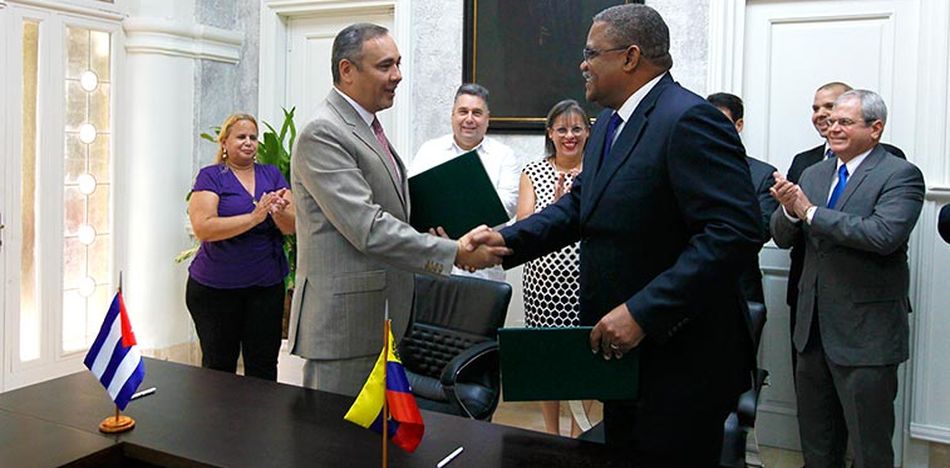
Español The President of Venezuela’s Supreme Court traveled to Cuba this week to meet with island magistrates about obtaining “technical-professional training” on a system of dictatorial “justice.”
Critics in the international community have long said that the Supreme People’s Court of Cuba is hardly a model of judicial excellence; nevertheless, Supreme Court President Maikel Moreno traveled there to sign an agreement as part of the “third cooperative accord” establishing a training program and an open exchange of ideas between the two countries.
Despite that the Venezuelan constitution clearly states that the judicial system must be politically impartial, the country’s Supreme Court has consistently shown its bias toward Chavismo — the ideas originally put in place by former President Hugo Chavez and that are now backed by President Nicolás Maduro — which bear resemblance to Raúl Castro’s judicial system as well.
Pedro Toconis, an exiled magistrate of the legitimate Supreme Court, said that the Cuban justice system has nothing good to contribute to Venezuela, as its members often violate human rights.
Justicia Cubana asesora a la Justicia venezolana!!!; se le olvido señor Moreno, que Cuba lleva años en dictadura; han fusilado a quienes piensen distinto; son expertos en violación de DDHH; es estupido, que ud diga que Cuba nos tienes algo que aportar en materia de justicia. pic.twitter.com/zEJSQzfHAv
— PEDRO TROCONIS (@pedrotroconis) December 4, 2017
According to Cuban lawyer Nelson Rodríguez Chartrand, judges in Cuba have become “soldiers of the revolution” to the point that President of the Cuban Supreme Court, Rubén Remigio Ferro, was once an active member of the Union of Young Communists (UJC) — an organization led by Fidel Castro.
- Read More: Venezuela’s Hyperinflation Reaches New Record of 4,000 Percent
- Read More: Venezuela Leads Latin America In Worsening Malnutrition Crisis
Venezuela’s legitimate legislative body, the National Assembly, dismissed members of the Supreme Court yet continue to serve. The opposition has pointed out that most of them have no qualifications beyond supporting the Maduro regime: They lack the 15 years of experience as a judge, 15 years of academic experience as a full professor of law or the 15 years of proven professional law practice experience.
In fact, most of the Supreme Court’s members are former ministers, former congressmen, defeated candidates and Chavez militants. Moreno himself is a criminal and a confessed ex-convict, having been found guilty of homicide in 1989.
Moreno was only in prison for one year before being released in 1990 due to reported protocol errors. After three months, he took a position as Secretary of a court in Caracas, having only completed one semester of law at Santa María University, which had given him a degree nonetheless in 1995.
Moreno has also reportedly been accused of forging records and procedural documents — an accusation that was dismissed by the Criminal Chamber of the country’s highest court.
The Venezuelan regime has decided to consult with the nations that the international community has deemed the worst examples to follow, looking to Cuba for help with their judicial system and to North Korea for economic matters.
Ahora si es verdad que la locura nos alcanzo como pais. El BCV pidiendo asesoria en materia economica a Corea del Norte y el TSJ en cuanto a justicia a Cuba
— Alberto Gonzalez (@albertogogo) December 2, 2017
Past representative of the Central Bank of Venezuela and the North Korean dictatorship met to “share ideas in the defense and construction of socialism.” The Director of the BCV Central Bank of Venezuela suggested imitating the socialist isolation of North Korea.
 Versión Español
Versión Español












